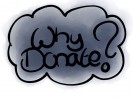Yesterday in the Irish Times, Dr Rhona Mahony, Master of the National Maternity Hospital, had something to say about folic acid. Up till now, you see, women people planning to become pregnant have been advised to take folic acid supplements daily. Ireland has a high rate of neural tube defects– which cause everything from spina bifida to anencephaly- the majority of which can be prevented with folic acid.
As of yesterday, this advice has changed:
“Up to 50 per cent of all pregnancies are unplanned, but a baby’s crucial neural tube develops in the first few weeks of pregnancy when many women may be unaware they are pregnant,” Dr Mahony said. …“Women who are sexually active should start taking the vitamin daily even if a baby is the last thing on their mind”
Taken at face value, this seems like good advice. If you’re at risk of getting pregnant, then taking a simple step to prevent painful or fatal birth defects seems sensible. And from a purely medical standpoint, I can see her point. Unplanned pregnancies happen! If I were at risk of getting pregnant and thought there was a reasonable chance I’d keep any pregnancy that resulted, I would seriously consider adding some folic acid to my daily routine. And I’m sure that, as a medical practitioner, Dr Mahony sees more of the suffering that neural tube defects can cause than most.
However, this doesn’t mean that Dr Mahony’s perspective- while important- is complete, or that she fully understands the context in which she speaks. Because medical advice is never given in a vacuum, and in this context Dr Mahony’s well-intentioned advice is ill thought-out, ignorant of context and in certain cases may be actively harmful.
Let me explain. Let’s go to the beginning.
Sex is not PIV.
Not every sexually active woman is at risk of becoming pregnant. This may seem obvious to you and me, but it’s important. Not everyone who can get pregnant is a woman. Not every woman can get pregnant. And being sexually active does not necessarily imply engaging in acts that could lead to pregnancy.
Again, this may seem obvious. It may even seem irrelevant. But our society-wide glorification of one kind of sexual act- penis in vagina intercourse (PIV)- over others is a problem. It’s based on a heteronormative ideal that says not only that sex between cis men and women is the only “real” kind of sex, but that even between cis men and cis women, only one act ‘counts’.
When Dr Mahony says “all sexually active women”, and really means “all people with uteruses who regularly engage in PIV”, she’s not just using a neutral kind of shorthand. She’s using a shorthand that actively erases groups of people- queer women, some trans men, cis women who can’t have PIV, infertile women- who are already marginalised.
Sexually active is not a synonym for potential parent.
It’s a small point. On its own, it wouldn’t be a such a big deal. So let’s start getting towards the meat of the problem, shall we?
Some of us know what we want.
Not every person who could become pregnant would want to stay that way.
Dr Mahony correctly points out that half of all pregnancies in Ireland are unplanned. A simple sentence, yes, but one which leaves out what is possibly the most important factor in all of this: unplanned is not the same as unwanted.
Let me say that again. Unplanned is not the same as unwanted.
Sometimes people aren’t planning on getting pregnant but if it happens, would be happy to consider continuing the pregnancy. Sometimes people would love to be pregnant and have a kid, are working to prevent it because they’ve other plans right now, but know that if it happened, they’d change those plans and work something out.
And sometimes people know full well that they don’t want to give birth. Maybe they are certain that they don’t want to be parents. Maybe they’d love to be parents but they have overwhelming reasons why now isn’t the time. Maybe there are medical reasons why they should definitely not carry a pregnancy. Or maybe, for reasons which are entirely their own and none of our business, they are either certain or fairly sure that a pregnancy that happened isn’t one they would continue with.
Unplanned isn’t the same as unwanted. Unplanned isn’t the same as unfeasible. And yet Dr Mahony conflates the two.
In a vacuum, this mightn’t be a problem. Again, we don’t live in a vacuum. We live in a society where the assumption that women don’t know what we want- and that the default state of having a uterus is womanhood, and the default state of womanhood is (desired) motherhood- is ubiquitous. And this idea- that you Just Don’t Know What You Would Do If You Got Pregnant- infantilises women, assuming that we don’t know our own minds and are incapable of making decisions about our future. Many of us know perfectly well what choice we would make if we got pregnant, thank you very much.
For those of us who know that we would carry to term, or for those of us who aren’t sure? Folic acid could be a great idea.
But some of us know that we don’t want to be parents. Or we know that we don’t want to, or cannot, carry a pregnancy to term.
Unplanned is not a synonym for dangerous. Or for impossible. Or even for unwanted.
We Do Not Have A Choice
Until now, what we’ve been talking about are mainly annoyances. It’s annoying when ‘sexually active’ is equated with ‘fertile person having PIV’. It’s irritating when people assume that women all secretly want to be mothers.
If this were only about irritations and assumptions, we could deal. But this advice comes in a context where pregnant people legally do not have the choice over whether to remain pregnant or not. According to Irish law, if I become pregnant and don’t want to be, I can be sent to prison for fourteen years for “intentionally destroying unborn human life”. And so can anyone who helped me to terminate. (Side note: this includes letting you know how you can safely access abortion pills online).
I said above that an unplanned pregnancy is not the same as an unwanted one. In Ireland, they are the same, because you have no right to terminate an unwanted pregnancy. In Ireland, consent to PIV sex is, legally speaking, equivalent to consent to parenthood. There is no distinction. This means that EVERY sexually active person with a uterus is nothing more than a potential vessel.
In this context, the reason why every sexually active woman should take folic acid is this: If you’re having sex, you have no choice in becoming a parent.
In this context, telling all sexually active women to take folic acid daily (every single day, for decades of their lives!) just in case that get pregnant even though they’re trying their damnedest not to? Can only be described as sinister: Do not forget for a second that your body belongs to us.
Of course, it gets worse.
Sometimes, we really do not have a choice.
Let’s imagine for a second a fertile uterus-bearer whose sex life features what, if you know them, will be an entirely unsurprising absence of chances to get pregnant (hello there!).
That doesn’t mean they won’t get pregnant. When at least 1/5 of us have been sexually assaulted (without even taking into account coercion), our risk of pregnancy is often not something that we can decide for ourselves. And remember again that in Ireland, having been raped is not considered legitimate grounds for terminating a pregnancy.
Does this mean that every fertile uterus-bearer, regardless of whether they’re having consensual PIV sex or not, should take folic acid daily? After all, the life of the unborn in Ireland is already prioritised over the health, well-being and choices of a pregnant person.
Individualised Answers Don’t Solve Social Problems.
Okay, you could say. Those points make sense. But queers, childfree women, and people who get pregnant following assault don’t constitute the majority of unplanned pregnancies. We’re outliers, and isn’t it important to get information and advice to people who need it? After all, neural tube defects have risen by a massive 27% in the last two years, at the same time as folic acid intake has fallen. We can sort out our hurt feelings over terminology after we prevent dozens of kids being born with serious impairments.
I couldn’t agree more. Let’s take a closer look, then, at whether there’s something that we can do to make a real difference. From the Irish Times, back in April:
Studies of women attending the Coombe women’s hospital show that as few as a quarter have taken folic acid before conception and that the numbers taking the supplement are declining
Another recently published study has revealed a decline in the number of food products fortified with folic acid. This means women are less likely to consume the vitamin passively in their diet.
…Prof Turner said austerity might be partly to blame, as people had less money for discretionary spending on higher-quality food products fortified with folic acid. The incidence of birth defects has also been found to be higher outside Dublin, as it is thought people in the capital spend more money on food.
And from the Irish Medical Times, also in April this year:
Renewed public health interventions, including mandatory folic acid food fortification, must be considered to reduce the incidence of neural tube defects (NTD), which appears to be on the rise, new Irish research has concluded.
…In Ireland, there is no mandatory folic acid food fortification, partly due to declining NTD rates in recent years.
…Regionally, the incidence of NTDs per 1,000 births was as follows: Dublin (0.76), mid-east (1.06), mid-west (1.09), southeast (1.25), southwest (0.95), border (1.34), midlands (1.46) and west (1.09). “It is possible that socio-economic differences on food expenditure in households may explain the disparity as Dublin households have up to 20 per cent more disposable income on average compared with other regions,” the authors speculated.
…They stated the findings of the study should serve as a basis on which to review the issue of folic acid fortification, which was postponed in 2008.
Tl;dr? We can take several things from this:
- Neural tube defects have been rising in recent years, and this is likely related to reduced intake of folic acid.
- Urban/rural and socioeconomic divides affect a person’s likelihood of having sufficient folic acid. Rural and poorer people, who have less disposable income and choices about what food they buy, are significantly less likely to get enough, and significantly more likely to have kid with NTDs.
- Foods can be and are fortified with folic acid. Discount foods are far less likely to be fortified than their high-end counterparts.
- Mandatory fortification was considered but the issue was postponed seven years ago and, as far as I can tell, hasn’t been looked at since.
Even that’s too much? The people who are most at risk of having babies with NTDs are the women with the least resources. They’re the same people who have the fewest options for pregnancy prevention (contraception ain’t free, and the most effective forms are often the most difficult to access).
Education Is Not The (Primary) Problem
Let’s imagine that every person in the country knew that we should be taking folic acid for NTD prevention in the weeks before and after we get pregnant.
Even if we all knew that, we would still find ourselves in a situation where the most marginalised face higher rates of NTDs than the rest of us. Education is one part of this puzzle, yes. But education doesn’t change the fact that without mandatory fortification, those of us who shop at discount stores will have lower levels of folic acid than those who can afford to go somewhere more fancy. It doesn’t change the fact that even with this information, in the real world the majority of us who aren’t intending on having kids are highly unlikely to remember to prioritise our non-existent potential offspring over our day-to-day concerns.
I mean, let’s get real here: one of the reasons that many of us are already on long-term hormonal birth control (and why typical use of birth control pills leads to much high failure rates than perfect use) is because remembering to take a pill every day is a giant pain in the ass. It’s a pain in the ass when you have an immediate reason to do it. It’s a pain in the ass when you live with a chronic medical condition that requires it. When you’re asked to do it for the health of a potential baby who you don’t want to have and mightn’t keep anyway? Sure, some people will do it. But there is no way that everyone will.
And because of that, we will continue to have a situation where the most marginalised people suffer higher rates of NTDs than their more privileged counterparts. That will continue. But there’ll be one essential difference: we’ll be able to tell them that it’s their fault.
We’ll be able to tell them that it’s their fault because we told them that this would happen. Because, yes, in every individual case a person could have made the decision, although they didn’t plan on getting pregnant, to take folic acid. On an individual level, it’s easy to assign blame and to force people to live with that guilt.
But on a systemic level? Individual decisions might be the responsibility of individuals. But the fact that we know that marginalised groups are more likely to suffer because of those decisions is not.
The fact that socioeconomic factors are at play here matters. It matters that the most affected here would be poorer women who can’t afford to travel for abortions, who might not have access to healthier food, who might not be able to afford the (negligible to many of us but not all) cost of supplements- or who might want to spend that money on something else instead, because when you’re broke or poor, your decisions have to be immediate. It matters that we are having this conversation in a context where pregnancy and womanhood and fertility are not neutral topics but ones where women have increasing restrictions placed upon them and are publicly shamed if they don’t live up to those. It matters that we’re in a context where the types of foods that used to be fortified with folic acid aren’t anymore, so a social problem again becomes individualised.
And yes, it matters that the people who would be most likely to be negatively affected by this are precisely the people who have the least choice over whether to become or remain pregnant.
Systemic problems require systemic solutions. Not passing the buck.
This advice comes in a context where mothers and pregnant people, specifically, face incredible restrictions, shaming and stigma surrounding dozens upon dozens of their choices and are expected at all times and in all circumstances to put their children before them, regardless of how damaging this is to them.
I don’t think this will do one jot to improve people’s quality of life. In a context where we often don’t have the choice to not become pregnant in the first place, and where as long as we remain here we never have the choice of whether to remain pregnant or not.
And this advice comes in a context where we know that higher rates of fortification of foods with folic acid makes a difference. Where we know that women with less access to income and education also have less access to food which has been fortified. And where we know that plans to make this fortification mandatory have been ignored for the better part of a decade, while austerity left us all living with far less and rates of NTDs rose.
This advice? It’s yet another stick to beat women with- an I told you so for every unlucky person who’ll hear again that she should have kept her legs shut or at the very least treated her body as if it were in a decades-long state of pre-pregnancy. A stick wielded by people who have no excuse but to know better, when they and we know that this will continue happening as long as we take the lazy route out and pretend that we can solve systemic problems with individual advice.
Even bloggers have to pay the bills! Monthly subscriptions- no matter how small- help give me the security to devote time to this place and keep a roof over my head:








